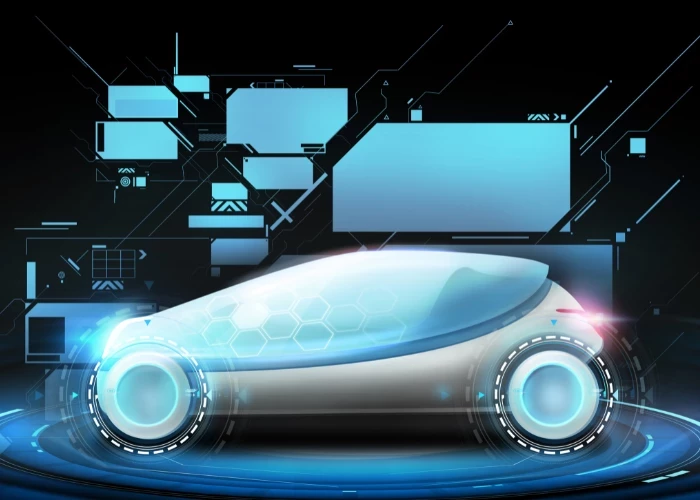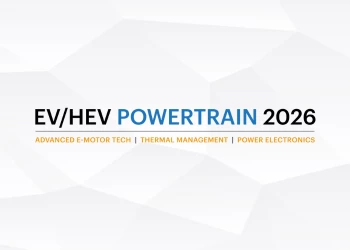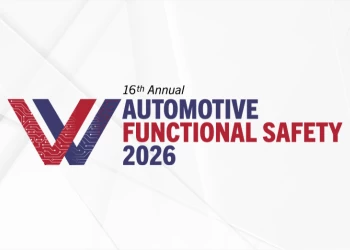Three events in 2019 that could change the industry forever
Add bookmarkWhile for many in the motor industry 2018 may very well have been a year to forget – from global trade concerns to slowing vehicle demand in China and growing public skepticism of self-driving cars – 2019 looks set to be as challenging.
Foremost on the minds of European business leaders, and in particular the automotive industry, are concerns around a “no-deal Brexit” and the impact this could have on the Anglo-European motor industry and the future of automotive manufacturing in the UK.
Image Source: Telegraph
Automotive trade body, the Society of Motor Manufacturers and Traders, says the Brexit impact is critical to the future of its members. Mike Hawes, SMMT Chief Executive, said: “There is no escaping the fact that being out of the customs union and single market will inevitably add barriers to trade, increase red tape and cost. Settling for “good” access to each other’s markets is not enough as it will only damage the UK’s competitiveness and reduce our ability to attract investment and the high-quality jobs that go with it.”
Will Brexit put the UK automotive industry out of business?
Parliament’s recent rejection of Prime Minister Theresa May’s Brexit plan exponentially increased the chances of a so-called 'no-deal' exit from the European Union (EU) and spurred a chorus of doom from business in general and automotive leaders in particular.
There are historic, structural reasons why the automotive sector will be particularly hard hit by customs, border and trade issues. It is a truly international industry, relying on the global reach of major manufacturers into highly interconnected supply chains and skills networks.
Professor Ferdinand Dudenhoeffer, director of the Center for Automotive Research (CAR) at the University of Duisburg-Essen expects the British auto sector that employs 186,000 people directly and tens of thousands more in the supply chain to be hit hard.
“I think companies could decide to reduce their workforce and activities in Britain in the near future. We see economic problems in China, the U.S. and the EU. Thus it makes sense to adapt capacity. At biggest risk is the U.K. and it makes sense to cut capacity there. For the Japanese (in Britain) it makes sense to shift activities to Eastern Europe and JLR and BMW’s Mini will also have to think about the size of factories in Britain” Dudenhoeffer said.
Faced with this uncertainty Japanese automakers are making concrete preparations for Brexit, with Toyota Motor and Nissan Motor planning to obtain vehicle certification in other EU countries to ensure they remain eligible for sale in the rest of the bloc after the U.K.'s departure.
Both companies currently have their vehicles certified in the U.K., as EU rules state that certification obtained in one member country is valid throughout the bloc. Brexit threatens to invalidate certificates obtained in the U.K. on vehicles destined for the rest of the EU.
While this might not be the norm for the majority of manufacturers, most companies are making contingency plans in preparation for the anticipated disruption:
Toyota is discussing plans to suspend operations at its plant in Burnaston, central England, around the time of Brexit in March, to avoid confusion regarding component procurement and delivery.
- Over at Jaguar Land Rover, Chief Executive Ralf Speth said a bad Brexit deal would cost Jaguar Land Rover more than £1.2bn profit each year. "As a result, we would have to drastically adjust our spending profile. We have spent around £50bn in the UK in the past five years - with plans for a further £80bn more in the next five… This would be in jeopardy should we be faced with the wrong outcome."
In anticipation of the tough times ahead the company placed 2,000 staff at its Castle Bromwich plant on a three-day week in December and is reportedly planning to cut around 5,000 jobs as it seeks to mitigate the impact of Brexit, the decline of diesel cars and slow sales in China. - BMW, the German owner of the iconic Mini brand plans to shut the plant for a month after the UK’s official departure from the European Union to minimise the impact of a no-deal Brexit that it fears would cause a shortage of parts. The annual month-long shutdown of the plant for planned maintenance and equipment updates is being brought forward to April 1st, the day after the Brexit deadline, in an effort to minimise short-term parts supply disruption.
- However, the firm is adamant that it will remain loyal to the UK further forward, and thus remains committed to the brand’s operations in Britain, which is the only country in the world where all three of the company’s automotive brands are manufactured.
- Aston Martin has hired a supply chain chief and approved Brexit plans to avoid delays by using ports other than Dover and flying in components as the automaker prepares for a possible no deal exit on March 30th, CEO Andy Palmer told Reuters.
Sky News, quoting unnamed sources at Ford, report that the company could face a bill of up to $1 billion if Britain leaves the European Union without a deal. - Honda UK has said it will shut down its Swindon factory for six days in April as part of its preparations for any disruption caused post-Brexit. The Japanese-owned car giant said the move was to ensure it could adjust to "all possible outcomes caused by logistics and border issues".
But not everybody believes that if Britain does leave the EU on March 30th without a deal the consequences will be horrendous: Because of modern technology, if Britain is forced to conduct its foreign trade by reverting to World Trade Organization terms, this is unlikely to cause long-term problems.
After all, just over 56% of its foreign trade is already conducted under WTO rules: Although, in this scenario Honda estimates costs would rise by 10 percent.
Can anyone say unequivocally that every car plant will remain open in the UK? No. But it’s equally unlikely that every major maker will announce plans to move on 1 April. What is likely is that the UK automotive sector will be a different, probably smaller player in the global industry, and that the multiple suppliers and associated industries will be hit as a result.
But while trade conditions in the UK, Europe and around the world may not look that promising, 2019 could herald a few unexpected technological breakthroughs in automated driving and electrification, to give hope to the beleaguered industry.
Tesla’s Autopilot 3 set to redefine autonomous, self-driving cars
While Tesla’s Autopilot ADAS has often been in the spotlight, mostly for the wrong reasons, it seems as if the company is on the brink of delivering an update that may just catapult it into the lead in the race to be the first company to rollout a functional autonomous self-driving system.
Designed to allow drivers to operate their vehicle with no hands on the steering wheel, Tesla claims the ‘Full Self-Driving’ (FSD) update is designed to detect “hard and soft objects,” using eight surround cameras providing 360-degree visibility at a range of 250 meters, along with 12 ultrasonic sensors and forward-facing radar.
The new update, known as Autopilot Hardware 3.0, is equipped with a Tesla PCI-Ex device named “TRIP”, which appears to work as a neural net accelerator. The latest iteration of Autopilot, that Elon Musk claims to be the ‘world’s most advanced computer for autonomous driving,’ has over 1000% more capability than the current HW2!
Through continued OTA software updates owners with the new hardware can expect more advanced autonomous features, which Tesla states will lead to full autonomy by the end of 2019 – Although Tesla has cautioned ‘self-driving package’ buyers that the actual activation could be ‘very far away’ due to regulations.
In achieving this Musk says the new silicon is an order of magnitude faster than the NVIDIA chips currently in their cars. The NVIDIA chips, Musk says, can deal with 200 frames of video per second, whereas Tesla’s priority chip can handle 2,000 frames per second, with some spare capacity left for redundancy and safety.
However, NVIDIA’s director of automotive, Danny Shapiro, has been quick to point out: “The performance claims are against what they have in the vehicle today, which are three years old - NVIDIA’s latest silicon is at least 10 times faster than that.”
When designing the chips, the team went back to a “bare metal level” and instead of layering up GPUs, which were originally designed to speed up graphics processing for gaming machines, Tesla designed the calculator and memory circuits from scratch, sitting right next to each other, so they can pass data at high speed, which has been a traditional choke point when a GPU is used in emulation mode to run an AI neural net.
Image Source: Electrek
While Tesla’s claims still need to be evaluated in real world settings, if true, the company may very well shorten the adoption of L3 to L5 automation by years, and elevate the company from an also-ran to the top spot in the race to autonomy.
Although Tesla may be threatening to take the lead in AVs, Volkswagen seems set on dethroning the company from its position of best-selling battery electric vehicle (BEV) manufacturer with the introduction of the MEB platform scheduled for SOP in November 2019.
VW reinvents the “people’s car”
Faced with spiraling emissions regulations that will require CO2 readings of less than 60 grams per km, the VW group plans to boost sales of its full-electric cars to account for between 45 to 50 percent of the group's total volume by 2030.
This, VW CE Herbert Diess intends to accomplish by bringing affordable electric cars to the masses - cars underpinned by an all-new electric platform called MEB (Modularen Electrik Baukasten - modular electric architecture).
The MEB platform strategy will support everything from the basic $21,000 entry-level Golf-size I.D. hatchback that VW announced in 2018, to production cars based on the concepts known as the I.D. Crozz crossover, the large I.D. Lounge sedan, and the long-awaited I.D. Buzz.
The automaker calls it “one of the most important projects in the history of Volkswagen,” and says MEB will account for more than 1 million EVs per year starting in 2025, thereby enabling pricing similar to that of a comparable diesel car.
The keen pricing is a crucial component in a broader plan at Volkswagen to create a contemporary, new electric-powered people’s car in a move aimed at mirroring the success of the original Beetle and its indirect successor - the Golf.
Source: Daily Express
VW plans to build 150,000 electric cars in 2020, (100,000 of which will be the I.D. compact car and I.D. SUV, which are both expected to premiere in 2020), offer 27 all-new EV models across four brands by 2022, and offer an electric version of every single one of its 300+ models by 2030. In total, the company expects to build at least 10 million EVs based on this new MEB platform, and Reuters reported last month that this could go up to 15 million.
The strategy should see EVs contributing between 15 and 18 percent to VW’s European sales by 2025 according to Diess.
So while there are hundreds of 2019 predictions out there, I’ve chosen to hone in on three events that may not be the most important over the coming year but are likely to have a lasting impact, and possibly change the future of the industry!
Sources:
• Fred Lambert; Electrek; Tesla to start testing new Autopilot Hardware 3 in employee vehicles; December 2018; https://electrek.co/2018/12/27/tesla-autopilot-hardware-3-employee-vehicles/
• Jack Stewart; Wired; Tesla Says Its New Self-Driving Chip Is Finally Baked; August 2018; https://www.wired.com/story/tesla-self-driving-car-computer-chip-nvidia/
• David Tracy; Jalopnik; The Fascinating Engineering Behind VWs Electric Car Platform of the Future; January 2019; https://jalopnik.com/the-fascinating-engineering-behind-vws-electric-car-pla-1829257860
• Greg Kable; Autocar; Volkswagen greenlights sub-£18,000 electric people’s car; November 2018; https://www.autocar.co.uk/car-news/industry/volkswagen-greenlights-sub-%C2%A318000-electric-people%E2%80%99s-car
• Neil Winton; Forbes; Brexit Plan Defeat Spells Doom For Britain's Auto Business, Industry Leaders Believe; January 2019; https://www.forbes.com/sites/neilwinton/2019/01/16/brexit-plan-defeat-spells-doom-for-britains-auto-business/#86ae0033b400
• Tim Coulthard; Future Insights Network; How will Brexit impact the UK Automotive industry?; January 2019; https://www.futureinsights.org/insights/automotive-impact-brexit


















